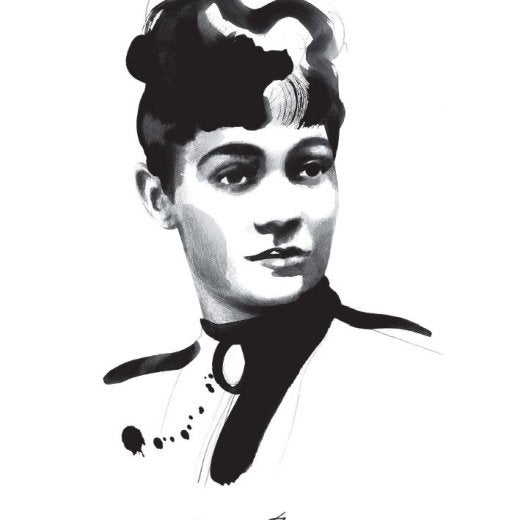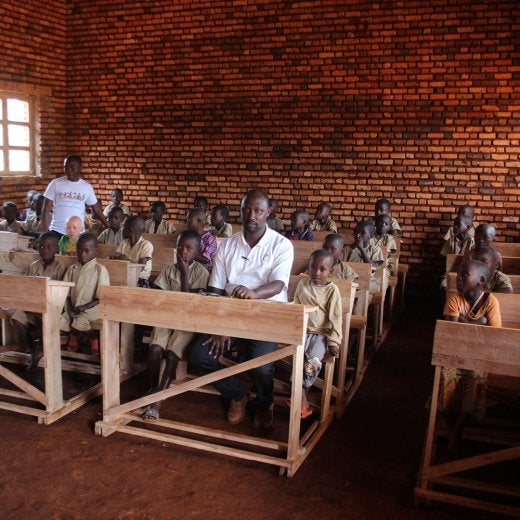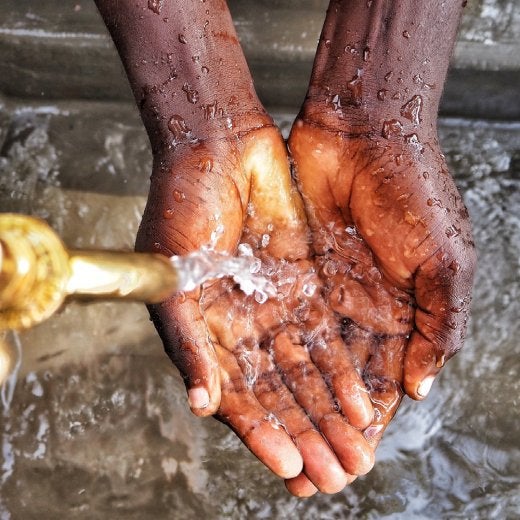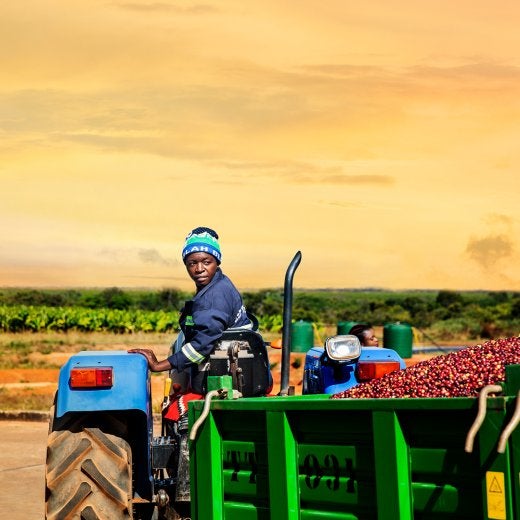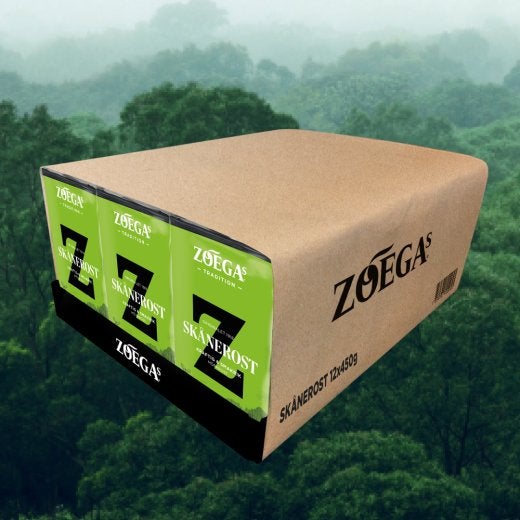COFFEE BY WOMEN
Utmaningarna med kaffeproduktion i östra Afrika är höga; framförallt är avkastningen låg, dvs en liten mängd kaffebär per buske, osäkra inkomster, små familjejordbruk och det faktum att kvinnorna som jobbar på familjens odlingar får väldigt lite erkännande i form av inflytande hur familjens pengar ska spenderas och när. Vårt utbildningsprogram inom hållbar kaffeproduktion ”Coffee by Women”, som vi började med i Kenya 2011, i Rwanda 2015 och i Uganda 2021, syftar till att göra kaffeproduktion mer lönsam och inkluderande så att odla kaffe är intressant som yrke även i framtiden och att det går att försörja sig på sina kaffebuskar.
Under 2022 gjorde vi nya samarbetsavtal med Kenya, Rwanda och Uganda. Vi har regelbundna uppföljningsmöten med våra partners för att stämma av att vi uppfyller och är på rätt väg mot de målsättningar och delmål vi har satt upp. Ett av våra delmål är bla att minst 30% av alla som får utbildning ska vara kvinnor, och även direkt riktade utbildningar med särskilt fokus på ledarskap. Vi förväntar oss också ökningar i form av ökad produktivitet och bättre kvaliteter vilket ska översättas i direkt ökade inkomster för kaffeodlarna.
VI FÖRVÄNTAR OSS ATT PROGRAMMET BIDRAR TILL:
- Bättre ekonomi för kaffeodlare (Improve Coffee Economics)
- Bidra till att göra samhällen mer anpassningsbara inför de förändringar med bla klimatförändringar som vi står inför (Make Communities More Resilient)
- Bidra till att göra omgivningar/landskapet mer hållbart (Make Landscapes More Sustainably Managed)
BÄTTRE FÖRSÖRJNING I KENYA
Men framförallt tenderar de att investera sina inkomster långsiktigt i odlingen, sina arbetare, sin familj eller någon sidoverksamhet för att stärka hushållets inkomst.
Vi på Zoégas brinner för hållbarhet och vill därför att så många kaffeodlare som möjligt, steg för steg ändrar från konventionell odling till hållbar odling och slutligen certifiering. Vi vet att vi måste börja med de kaffeodlare som har minst förutsättningar för att öka utbudet av hållbart kaffe. Den unika Zoégas-smaken kommer från kaffebönor av hög kvalitet, främst från Östafrika. Utbudet av hållbart odlat kaffe av vår höga kvalitet är begränsat i regionen och räcker inte idag för att möta efterfrågan på marknaden.
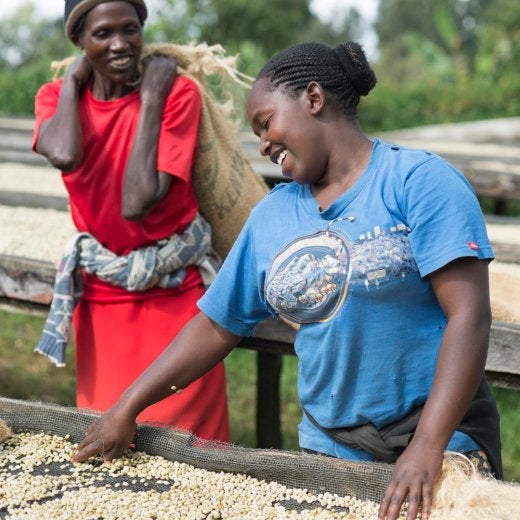
RENOVERING AV KLASSRUM I BURUNDI
MUKAMUSANA ALPHONSINE
RWANDA
I grew up in the Rulindo district where I lived a relatively normal life, growing up we were not involved in coffee farming but other food crops such as beans, sweet potatoes and sorghum.
Now I earn money from coffee growing which helps in the development of my family. Partnering with Kahawatu I have gained skills based on good agriculture practices.
All the land I have now goes up to one hectare, the coffee I have planted is in good condition and I am planning to start harvesting it this year for the first time. I have a few exceptions of a number of trees that didn’t grow properly because of the sun, I am in the process of asking for re- placement of those trees.
Since working with the Foundation we take care of our coffee in a serious manner, the lessons we obtained through Kahawatu include how to properly plant coffee and applying best agricultural practices and how to apply fertilizer on coffee trees.
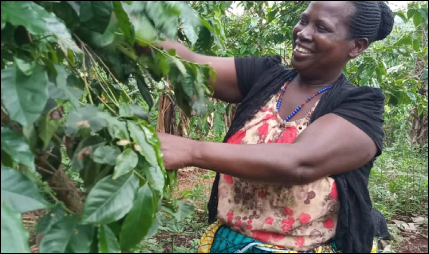
The challenge we face is not being able to do all on farm activities such as pruning. Secondly most females whose households are headed by men, have limited access to coffee income. In order to help female coffee farmers should be facilitated with equipment which do not require much energy to use it. Also advocate for women with limited access to income from coffee.
Before working with Kahawatu I never obtained 3 tons and since I started working with Kahawatu, last year I got 4.5 tons and now I have reached 5 tons.
BÄTTRE INKOMST FÖR KVINNOR I RWANDA
MARTIN KIMTAI MOCHOMU
KENYA
My name is Martin Kimtai Mochomu, I am married and have five children. I am a farmer in the Kapkurongo Cooperative and have been growing since 2017. I have been doing this for three years and am therefore still relatively new to coffee growing. I have a quarter acre of coffee, that means about 150 trees, of the new Batian variety.
Right now I harvest about 440 kg per season. It is about three kilos per tree. So I still have a long way to go but through the training we have had with the agronomist, I know that next year I will be able to harvest 3.5 kilos and after that I can improve a little every year.
In the beginning I looked for jobs everywhere, sometimes I had a job and sometimes I was without. I therefore had no stable source of income and it created a lot of uncertainty for my family. I had to look around for what else I could support myself with and I chose coffee because it is easy to handle and the market is not saturated in the same way. It is also worth mentioning that it is really exciting and every day there are several activities to perform on the farm.
So far I have invested Kenya shilling. 15, 000 and I will invest more in the expansion of the farm. Coffee growing has created a job for me and now also my two employees.
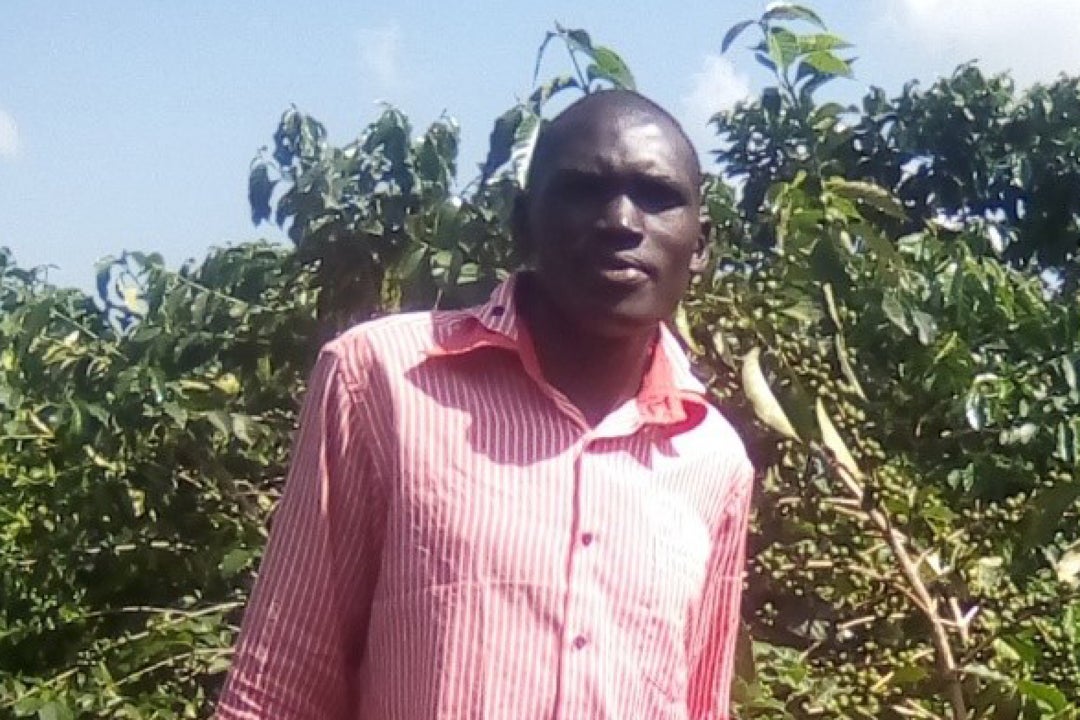
Through our agent, we heard about the Nestlé partnership - and we thank God for Nestlé. Coffee is a perennial crop and therefore you need to know exactly what to do. I almost gave up the coffee business before Nestlé came into the picture because we would lose so much production due to poor farming practices. It is not easy to get a good agronomist, and those that are available I can not afford. But this type of training, I think I will be able to harvest 10 kg per tree in the next five years.
SOLCELLER OCH FICKLAMPOR I RWANDA
LILLIAN
KENYA
Lillian is a young woman who owned land with a total of 100 coffee bushes in 2017. This after taking over them from her parents, the only legacy she has as it looks today. The 100 shrubs include the old K7 variety and Ruiru. She supplies to Kaughi Wetlands which is affiliated with Mukarwa FCS.
She has been in this business for two years and currently she can harvest 140kgs. With this type of production, Lillian finds it difficult to go break-even, which is one of the reasons why young adults in Kenya are discouraged from cultivating coffee. This means that she only harvests 1.4 kg of shrubs. The last time an economic sustainability study was done in Kenya was in 2018 and then indicated that the economic sustainability of a small farmer such as Lillian in Kenya was 2.53 kenya shillings, which means that Lillian is currently not economically sustainable. But the brighter side of it all is that the break-even point is 1.28 kg, which means that her business can cover her costs and even leave a small margin for her.
Nestlé’s ”Coffee by Women” initiative was launched in its co-operative in January 2019. It aims to help farmers improve their economic sustainability. The program has hired motorized agronomists to train farmers on their farms. This type of training method is beneficial for young adults like Lillian who have small children and who do not have much time and opportunity to get to a common training place.
The program within Lillian’s co-operative also has a number of places to demonstrate the work they teach. This means that farmers have the opportunity to witness the real activities but also see the benefits of doing it the right way
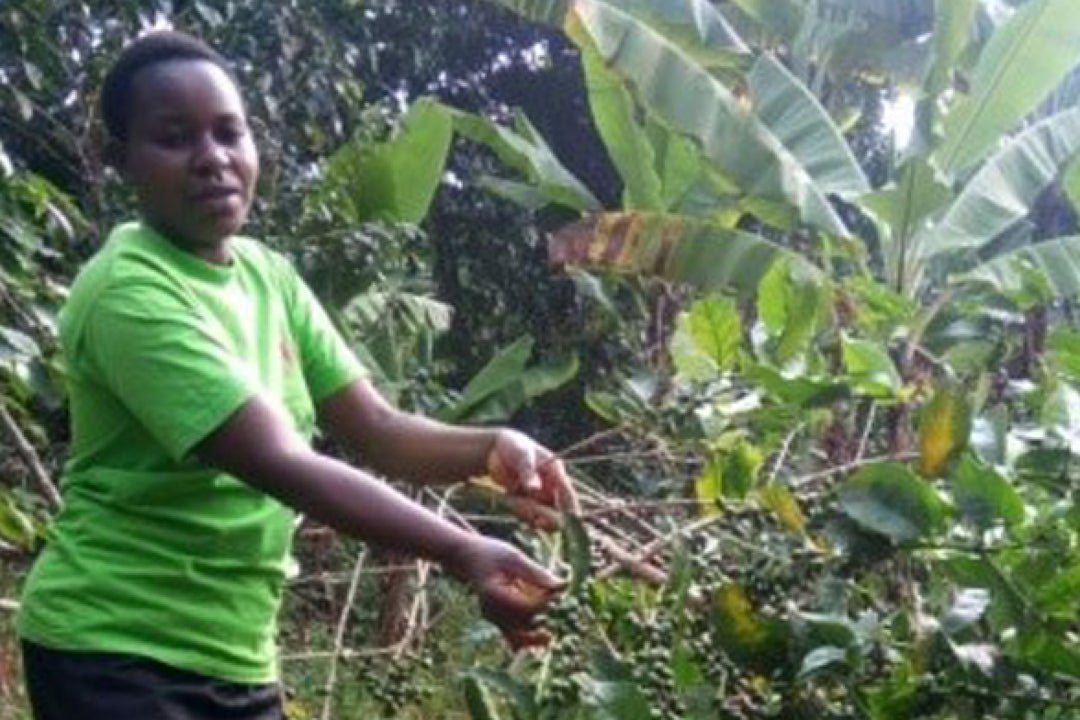
Improved productivity will reduce production costs and thus increase the profit margin. However, there are other factors that came into play such as climatic conditions, access to capital and fertilizers (which they can afford) and also price stability.
Although her land is small, Lillian is determined to make her business sustainable, until today she has invested in Kenya Shilling. 8,000 and this only on fertilizer because she can perform most other manual activities with the help of her parents.
Unlike many other young people in the village, Lillian hopes for her coffee cultivation. She strives to harvest 1500 kg for the next five years - which would mean 15 kg / tree. She also believes that through ”Coffee by Women” she will have many coffee management skills and for her it is Nestle / CMS that provides exactly what she needs to make her business sustainable.

